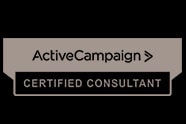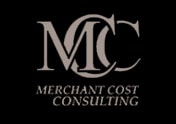Are you considering buying a dental practice in 2024? Congratulations! This comprehensive guide will walk you through everything you need to know about purchasing a dental practice and ensure you make an informed decision. From understanding the dental practice market to finalizing the deal, we’ve got you covered. Let’s dive in!
NOTE: This article is for informational purposes only. It is not legal advice and should not be treated as such. Please consult a legal professional before deciding to purchase a dental practice.
Understanding The Market For Dental Practice Sales
If you’re considering buying a dental practice, you need to have a clear understanding of the current trends in the dental practice market. Otherwise, you risk making costly errors that stunt your growth or leave you with mountains of debt and little income. This guide will help you make informed decisions on the actual state of the dental marketplace and navigate the buying process smoothly.
The dental practice market is a dynamic and ever-evolving industry. Factors like economic conditions, technological advancements, and changes in healthcare policies shift continually. By updating yourself on current trends, you can position yourself to capitalize on opportunities and make wiser strategic decisions.
FREE BOOK: Orthodontic Secrets
What Should You Know Before Buying A Dental Practice In 2023?
While traditionally dentists often made deals to sell their practices to other dentists, in recent years, a couple of noticeable shifts have occurred in how dental practices are bought and sold.
While private sales between individual dentists still happen, involving a broker has become increasingly common. Brokers play a crucial role in connecting buyers and sellers, facilitating negotiations, and ensuring a smooth ownership transition. They add some additional price to the transaction, but in the end, it’s mostly a positive development for both buyers and sellers.
Another trend worth noting is the rise of corporate buyers in the dental practice market. Large dental chains and corporate entities are acquiring dental practices at an unprecedented rate. These corporations use economies of scale, enhanced marketing capabilities, and access to resources to extract more profits from existing practices.
The corporate dental practice trend has created new opportunities for dentists looking to sell their practices. But it means you may encounter more competition when buying a dental practice as an independent dentist in 2023.
Key Players In The Dental Practice Sales
When entering the dental practice market, you must familiarize yourself with the key players. These include brokers, corporate dental chains, individual sellers, and potential business partners. Understanding each of their roles and motivations will help you navigate negotiations and find the best practice for you:
Brokers
Brokers are intermediaries specializing in facilitating the buying and selling of dental practices. They have an in-depth understanding of the market, access to a network of potential buyers and sellers, and expertise in negotiations and deal structuring. Working with a reputable broker can significantly streamline the buying process and increase your chances of finding a suitable practice.
Corporate Dental Chains
Corporate dental chains are becoming increasingly influential in the market. These chains operate multiple dental practices under a unified brand and management structure. They offer dentists the opportunity to join a more extensive network, benefiting from shared resources, marketing support, and administrative efficiencies. For dentists looking for stability and growth potential, partnering with a corporate dental chain can be an attractive alternative to buying a dental practice outright.
Sellers
Individual sellers are dentists who have decided to sell their practices for various reasons, such as retirement, relocation, or career changes. They may have built successful practices over the years and are now seeking a successor who can continue their legacy. Open and transparent communication with individual sellers is crucial to understanding their motivations and negotiating a fair deal.
Partners
Potential business partners could be the key to helping you purchase the dental practice you want. Partnering with another dentist or group of dentists can provide shared responsibilities, financial resources, and expertise. Your partner could be another dentist or a financial investor with whom you’ll share profits. Additional support is often necessary when you want to expand your practice or enter new markets. However, it’s essential to carefully evaluate compatibility, shared goals, and expectations before entering any business partnership.
Preparing To Buy A Dental Practice
Before diving into the purchasing process, there are several key considerations to keep in mind. These include financial aspects, legal considerations, and evaluating your professional readiness.
Buying a dental practice is a significant financial investment. So it’s crucial to examine your financial situation and determine your budget. You need to consider the purchase price, remodeling costs, and ongoing expenses like lease agreements, dental equipment, and staff salaries.
When determining the purchase price, you’ll need to consider various factors such as revenue, net earnings, location, patient base, and the condition of the practice.
FREE BOOK: Orthodontic Secrets
How Is A Dental Practice Valued?
Traditionally, many dentists used back-of-the-napkin math to estimate their practice’s value. But it’s no longer good enough to value a practice at 70% of one year’s collections.
Especially with the introduction of corporate cash into the market, dental valuations depend on a variety of factors. But those factors break down into two main categories:
- Income-based valuations
- Market-based valuations
Income-based valuations are driven by current financial information, like pre-tax profits (EBITDA) or discounted cash flows. On the other hand, market-based valuations will look at the purchase price of similar practices in your area and account for your current assets, patient base, property/equipment, and potential for growth.
There are many different ways to establish the value of a dental practice. Of course, you and the seller will want to look at the numbers that most benefit you. A broker can be vital during this stage to help you understand the value (and potential) of the dental practice you plan to buy.
How Much Work Does It Need?
In addition to the purchase price, you’ll also need to factor in the costs of any necessary renovations or upgrades to the practice. Include costs for modernizing equipment, renovating the office space, implementing new technology systems, or hiring new team members. These expenses can quickly add up, so it’s important to budget accordingly.
Furthermore, you’ll need to consider the costs of dental equipment and supplies. If you’re buying the existing equipment, too, that’s a start. But suppose the practice needs to upgrade its equipment to stay competitive. In that case, you may need anything from new dental chairs and instruments to X-ray machines and sterilization equipment.
It’s important to research different suppliers, compare prices, and ensure that you invest in high-quality equipment that will meet your needs as you grow.
Legal Considerations When Buying A Dental Practice
When purchasing or starting a dental practice, it’s crucial to understand the legal ramifications to protect your interests. Always consult with legal professionals specializing in dental practice acquisitions to review contracts and leases and ensure compliance with relevant regulations.
Letter Of Intent
The Letter of Intent is the first significant legal document you’ll need when buying a dental practice. It details things like your intended purchase price and the general structure of the agreement (assets, staff, transition plans). The letter of intent usually ensures the selling dentist won’t accept other offers while your team conducts due diligence.
Purchase Agreement
The purchase agreement will confirm and expand upon the details of the terms and conditions of the sale, including the purchase price, payment terms, and any contingencies. It’s essential to have a lawyer review the agreement to ensure that your interests are protected and that there are no hidden clauses or unfavorable terms.
Lease Agreement
If you are purchasing only the practice and not the physical office location, you’ll need to negotiate a lease agreement with the landlord. Reviewing the lease terms, including the duration, rent amount, and any provisions related to renovations or modifications to the space, is essential.
Other Legal Documents
There may be other legal documents to review and sign, such as non-compete agreements or employment contracts for staff members. It’s crucial to have a legal professional guide you through the process to ensure that your rights and interests are protected. It’s easy to overlook something that could put your entire purchase at risk.
Licensing & Compliance
You’ll also need to consider compliance with relevant regulations and licensing requirements in your city, state, or county. Familiarize yourself with all regulations to ensure that the practice you buy is in compliance. You may need to conduct a thorough due diligence process to review the practice’s compliance history and uncover potential liabilities before it’s too late.
Are You Ready To Purchase A Dental Practice?
Buying a dental practice requires more than just financial and legal considerations. You also need to make an honest assessment of your own professional readiness. Assess your skills, experience, and long-term goals, and ask yourself if you are ready to take on the responsibilities of owning and managing a dental practice.
Clinical Skills
For instance, do you have the necessary experience and knowledge to provide high-quality dental care to patients? It’s vital to assess your clinical abilities and identify areas where you may need additional training or support. If you don’t have all the skills you need today, that doesn’t mean you can’t buy a dental practice. But you may need to seek out a partner dentist or work aggressively to level up your skills.
Management Skills
In addition to clinical skills, you’ll also need to evaluate your management and leadership abilities. As the owner of a dental practice, you’ll be responsible for managing and leading a team of staff members. You must hire and train employees, create work schedules, and oversee day-to-day operations.
It’s important to assess your management skills and determine if you have the necessary qualities to lead a successful practice.
Long-Term Goals
Think for a moment about your long-term goals and aspirations. What do you hope to achieve in your career in the next 10 to 20 years? Are you looking for financial stability, professional autonomy, or the opportunity to impact patients’ lives positively? And is buying a dental practice the best way to get you there?
It’s crucial to align your goals with the realities of owning a dental practice and ensure you are prepared for the challenges and rewards that come with it.
Life & Lifestyle
Lastly, you should also evaluate your personal and lifestyle considerations. Owning a dental practice can be demanding and time-consuming. Look at your life critically and assess whether you can commit the necessary time and energy to make it successful. Consider factors such as work-life balance, family commitments, and personal interests to determine if owning a dental practice aligns with your overall lifestyle.
How To Buy A Dental Practice: A Step-by-Step Guide
At this stage, you’ve decided you’re ready to be a practice owner. And we’ve talked about the financial and legal aspects. So now, let’s dig into the step-by-step process of buying a dental practice.
From identifying potential practices for sale to finalizing the deal, we’ll guide you through each stage.
FREE BOOK: Orthodontic Secrets
Identifying Potential Practices For Sale
Start your buying journey by identifying potential dental practices for sale. Put the information out to your network that you’re looking to purchase a practice, and opportunities will start to pop up. Cast a wide net and gather as much information as possible about each practice to make informed comparisons.
Here are some places to get started looking for dental practices for sale:
- Brokers
- Online Listings
- Your Professional Network
- Word-of-Mouth Referrals
Your preferences and goals will set the parameters of your search. So ask yourself some basic questions, like:
- Are you looking for a small family-oriented practice or a large multi-specialty clinic?
- Are you willing to relocate to a different city or state?
- Are you okay with leasing, or do you want to buy a property too?
These factors will help you narrow your options and find practices aligning with your vision. It’s okay to stretch outside your comfort zone at first (it may be impossible to find something that meets your ideal criteria), but don’t waste too much time chasing down opportunities that won’t help you achieve your goals.
Once you have a list of potential practices, it’s time to dig deeper. Research the reputation of each practice, both online and through professional networks. Look for reviews and testimonials from patients and colleagues to understand the practice’s quality of care and reputation within the industry.
Conducting Due Diligence
Once you have done your research and narrowed your search down to a single practice, you’ll need to contact due diligence before moving forward with the purchase. Due diligence involves a comprehensive assessment of the practice’s financial records, patient base, staff, equipment, and legal obligations. Thorough due diligence is key to avoiding any hidden surprises or undesirable situations.
Letter Of Intent
Before moving into the due diligence process, you’ll need to issue a letter of intent. A letter of intent establishes the preliminary structure of your potential purchase, including things like anticipated purchase price and vision for transition.
The letter of intent is usually non-binding, meaning you can still back out of the deal or completely change the terms. Still, it establishes the intention of both parties to work out a deal. The seller will take the practice off the market after receiving the letter of intent, give you access to financial statements and tax returns, and allow you access to study the office’s operations and staff.
Financial Due Diligence
During due diligence, a financial professional should review the practice’s financial statements and tax returns to understand its profitability and financial stability. Analyze patient demographics and retention rates to gauge the potential for growth and sustainability. And evaluate the condition and value of the equipment to ensure that it meets your needs and won’t require significant investment.
Operational Due Diligence
As the doctor, you’re the ideal person to analyze the practice’s operational, clinical, and staffing aspects. Spend time at the practice understanding how they work with patients, how they provide treatment, and the overall office atmosphere and vibe. If you keep existing staff, they’ll be critical to your success and profitability. Don’t overlook this step, or we guarantee you’ll regret it.
Legal Due Diligence
Have your legal team review any legal obligations and contracts associated with the practice. Include leases, vendor agreements, and employee contracts. Engage the services of a legal professional experienced in dental practice transitions to help you navigate this complex aspect of due diligence.
Financing Your Dental Practice Acquisition
As you progress through the purchasing process, you’ll need to work with financial professionals to determine what financing options are available to you. Securing adequate funding is crucial to closing your purchase. Here are some of the funding options you can explore:
- Bank Loans — Many dentists use bank loans to finance their practice acquisition. Approach local banks or financial institutions that specialize in dental practice financing. You’ll need a comprehensive business plan, financial projections, and supporting documents to demonstrate your creditworthiness and the viability of the acquisition.
- Partnerships — Another financing option is to seek investment partners who can provide capital for the acquisition. Consider partnering with other dentists, dental specialists, or dental support organizations (DSOs) to share the financial burden and leverage their expertise and resources.
- Seller Financing — In some cases, the seller of the dental practice may be willing to provide financing for a portion of the purchase price. Negotiate with the seller to explore this option, which can offer advantages such as flexible terms and potentially lower interest rates.
- Equipment Leasing — If the dental practice you’re acquiring needs equipment upgrades or additions, consider equipment leasing options. Leasing allows you to acquire necessary equipment without a significant upfront investment, preserving your cash flow for other aspects of the acquisition.
Evaluate each financing option’s terms, interest rates, repayment schedules, and any potential impact on your cash flow. Consult with your financial advisors and consider the long-term financial implications of each option. By making informed decisions about financing, you can position yourself for a successful dental practice acquisition while maintaining financial stability.
Completing The Purchase
Completing the purchase is a critical stage where your financial, operational, and legal considerations come into play. Approach negotiations with a clear understanding of the practice’s value and market conditions and your financial capabilities. And work closely with your legal and financial advisors to structure an agreement that aligns with your objectives.
Negotiate Purchase Terms & Conditions
When negotiating the purchase, you must consider the purchase price and other terms and conditions, including the allocation of assets, transition support from the seller, and non-compete agreements. Be prepared to negotiate and compromise to reach a mutually beneficial agreement.
It can be exasperating when you can’t seem to agree on terms. But trust your research and your professional team to make the right decision. As much as you may want to buy a dental practice, walking away from a deal is better than getting stuck with millions of dollars in debt and a practice that doesn’t make money.
Set your “non-negotiables” or lowest-acceptable terms before you get started, and don’t waver from them. Resist the temptation to start revising your projections optimistically to get the deal closed. Insist on terms that set you up for short-term and long-term success.
Finalize The Purchase Agreement
Work closely with your legal team to draft a purchase agreement outlining the sale’s terms and conditions. This document should cover all aspects of the transaction, including the purchase price, payment terms, and any contingencies. And it should consider any potential liabilities or issues you uncovered during your due diligence.
Transfer License & Permits
Depending on the scenario and local regulations, you may need to apply for new licenses or transfer existing ones to your name. Ensure that you know all the licenses and permits required to operate the practice legally in your jurisdiction. A legal professional experienced in dental practice purchases is indispensable at this stage.
Execute A Seamless Transition
A smooth transition for patients and staff is crucial for maintaining the continuity of care and preserving the practice’s reputation. Communicate openly with the seller and establish a transition plan that addresses patient notifications, staff retention, and any necessary training or orientation for the new team.
By following these steps and seeking professional guidance throughout the process, you can confidently navigate the buying process and increase your chances of a successful acquisition.
Are You Ready to Buy A Dental Practice In 2023?
In this ultimate guide, we’ve walked you step by step through the process of purchasing a dental practice in today’s market. You now have all the knowledge and insights to navigate the process and find the perfect practice to build your future business.
But please, we can’t stress enough that you should consult with industry professionals and take your time to ensure that your acquisition aligns with your long-term goals. Good luck on your exciting journey toward owning a successful dental practice!










